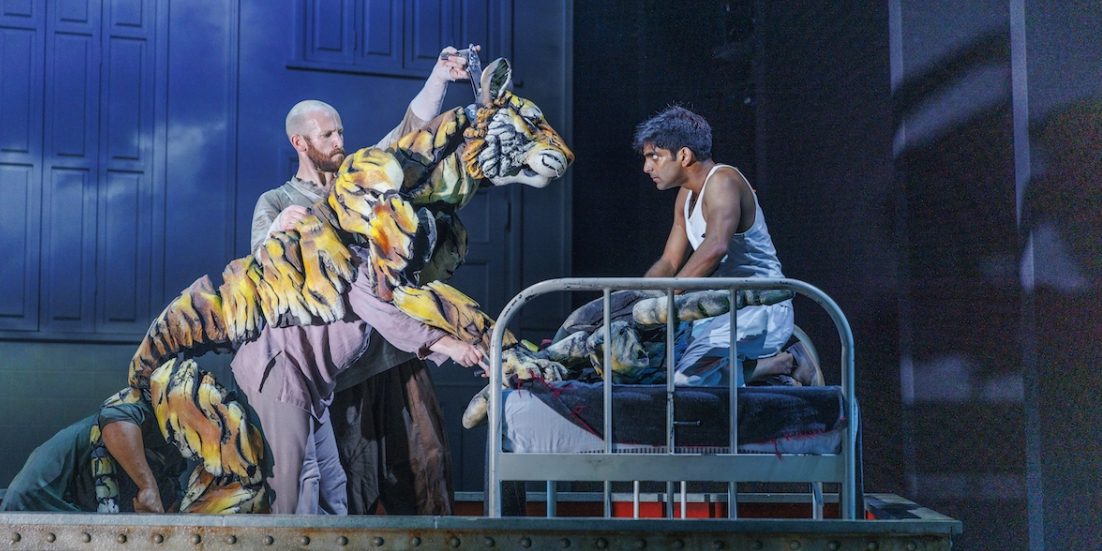Transforming Martel’s extraordinary novel about a boy and a tiger adrift on the ocean after a shipwreck into a theatre piece must have seemed pretty far-fetched until the Sheffield Crucible team asked Lolita Chakrabarti to take it on. And teaming her up with Finn Caldwell, who has spent the last 15 years finding ways to create puppets that fizz with life and expressiveness, was a master-stroke. Despite some stellar performances – particularly from Nuwan Hugh Perera, the new Pi in this recast run at Wyndham’s – it is the interaction between humans and animals/puppets that makes this show so compelling.
Pi’s family runs a zoo in Pondicherry and the early scenes celebrate his happy family life there and show how issues of truth and faith fascinate him – there is a clever scene where ministers of the Muslim Hindu and Christian faiths bicker as they seek to confirm his loyalty. All these changes when political turmoil in India leads his father to decide to relocate the zoo to Canada. They embark on a ship with all the animals but there is an unexplained disaster and the ship sinks. The only survivors are Pi and four of the animals including a tiger. After many days adrift Pi and the tiger wash up on a Mexican beach. The tiger disappears into the jungle and Pi ends up in a hospital room where he is questioned by two investigators trying to find out what happened to cause the sinking. It is the progress of this interrogation that frames and punctuates the drama.
This new cast all produce performances that portray the Patel family relationships with charm and affection – life in Pondicherry looks vibrant and warm. Pi’s sparring with his sister, affectingly played by Tanvi Virmani, is particularly well drawn. But, once the ship sinks, it is the interaction between Pi and the animals that becomes the heart of the play. The puppeteers behind (and inside) the animals are superb and the gradually developing relationship between Pi and the tiger provides the core of the drama that drives the second half of the play. And the periodic encounters between Pi in the hospital and the investigators are the mechanism that enables Pi to tell the story of his survival against all odds – and also to bring out the philosophical conundrum that underpins the novel. How do we decide if Pi’s incredible story is true? – he eventually gives a second version of the story that seems more “realistic” but in the end, the investigators choose to believe the better story.
This is an intriguing dilemma but it is, in reality, a very secondary feature of the stage show which is raised to an award-winning level by the excellent performances, the truly brilliant staging, and the extraordinary puppetry. The test of its success is that, by the time the tiger heads off into the Mexican jungle, the audience has almost forgotten that he is a puppet. It is a show to be enjoyed at every level. Do go to see it at Wyndham’s Theatre in London if you can – before different versions head off to Broadway and elsewhere.

